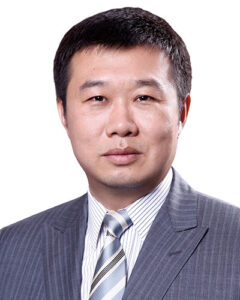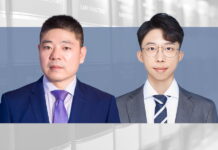Q: What are the primary sticking points for employers in taking legal action against ex-employees for trade secret misappropriation?

Partner
AnJie Law Firm
A: According to the Anti-unfair Competition Law of the People’s Republic of China, “trade secret” is defined as technical information and commercial information that is unknown to the public, which could bring economic benefits to the owner, which has practical applicability and which the owner has taken measures to keep secret.
Determination of the scope of trade secret and evidence collection of trade secret misappropriation are two major obstacles for the owner to enforce its trade secret. In practice, whether a former employer’s claims are supported by a court are significantly determined by whether it can present a clear scope of its trade secret and provide evidence proving that it has taken appropriate measures to protect its trade secret.
Given the secret nature of trade secret misappropriation, a fundamental principle broadly adopted by courts is whether information possessed by a former employee is at least substantively similar as that claimed by a former employer, whether the former employee did, or did likely, get access to such information, and whether the former employee can provide a legitimate source for his or her information.
However, this principle does not mean that the former employer can simply rely on a court to make a judgment and/or the former employee to prove his or her innocence. Instead, it should take appropriate and effective action to collect evidence against the ex-employee, especially when it suspects the ex-employee anonymously shared its trade secrets with its competitors.
Q: How are disputes related to trade secrets categorized? Are there many such disputes caused by employee departure?
A: Disputes related to trade secrets either take place between two companies or between an employer and its employee. According to incomplete statistics, more than 90% of trade secret disputes are between employers and employees, and a similar percentage of such disputes are triggered by employee departure.
Trade secret disputes triggered by employee departure can be classified into three categories: (1) a departing employee stole the employer’s trade secret and shared it with his or her new employer; (2) the departing employee set up a new company alone or with others to use the ex-employer’s trade secret; and (3) the departing employee acted behind the scenes to misappropriate the ex-employer’s trade secret.
Q: How do I build a well-guarded system to secure my trade secrets?
A: Given the secret nature of a trade secret, the owner usually cannot be sufficiently compensated via civil litigation and other remedy channels once the trade secret is misappropriated. Prevention of trade secret misappropriation is much more important and necessary for an enterprise than pursuing judicial remedies afterwards .
Building a well-guarded security system is critical for trade secret protection and protective measures can also be used as favourable evidence in future potential litigation. A comprehensive security system must be built in consideration of the characteristics of different industries and operation models of individual companies. From the perspective of preventing leaked secrets and facilitating future enforcement, the authors offer the following key suggestions: (1) classify the company’s technical and commercial information according to levels of confidentiality; (2) build a full set of trade secret access mechanisms, and take appropriate protection measures, such as physical isolation, data encryption, device access restrictions, and real-time monitoring; (3) sign confidentiality agreements and non-compete agreements with employees who may get access to trade secrets, and provide regular training for them; (4) set rules regarding the management of departing employees who have access to trade secrets; (5) preserve materials about creation, maintenance and use of trade secrets, such as R&D data, cost estimates and licence records; and (6) properly dispose of devices that contain sensitive information, especially electronic devices.
Q: How is a company’s non-compete regulation related to trade-secret protection?

Partner
AnJie Law Firm
A: Non-compete regulation is a powerful tool granted by the Labour Law to companies to protect their trade secrets and other business interests. A company can sign a non-compete agreement and make compensation to its former employees in exchange for their commitments not to work for any competitors, so as to reduce the risk of trade secret misappropriation, for a certain period.
In addition, non-compete regulation can be used as a weapon in trade secret enforcement. If a trade secret has not been shared by a former employee with his or her current employer, a non-compete agreement can effectively prohibit the former employee from continuing to work with the competitor. Moreover, a dispute on non-compete might provide useful evidence for trade-secret enforcement.
Q: What should a company do when it finds that its ex-employee breached the non-compete agreement and is working for a competitor?
A: If an ex-employee breaches his or her non-compete agreement and works for the company’s competitor, while the company has no proof that its trade secrets have been misappropriated, the authors believe there is a relatively high risk of trade secret misappropriation, and advise the company to resolve such dispute with the ex-employee through labour arbitration, so as to force the ex-employee to terminate the employment relationship with its competitor.
When a company discovers its ex-employee breached the non-compete agreement and leaked its trade secrets, it has three options: (1) file a labour arbitration against the ex-employee for breach of the non-compete agreement, and then file a lawsuit against the ex-employee and his or her new employer for their misappropriation of its trade secrets; (2) file a labour arbitration and an infringement lawsuit simultaneously; and (3) only file an infringement lawsuit against both the ex-employee and his or her new employer. The authors suggest the company, based on details of a specific case and comprehensive assessment, should form an appropriate strategy to enforce its rights and adopt a suitable approach to gather evidence and proceed with legal action.
Li Binxin and Liu Zhenghe are partners at AnJie Law Firm
北京市朝阳区东方东路19号院5号楼
亮马桥外交办公大楼D1座19层 邮编: 100600
19/F Tower D1, Liangmaqiao Diplomatic
Office Building, 19 Dongfang East Road
Chaoyang District, Beijing 100600, China
电话 Tel: +86 10 8567 5988
传真 Fax: +86 10 8567 5999
电子信箱 E-mail:
libinxin@anjielaw.com
liuzhenghe@anjielaw.com
www.anjielaw.com





















